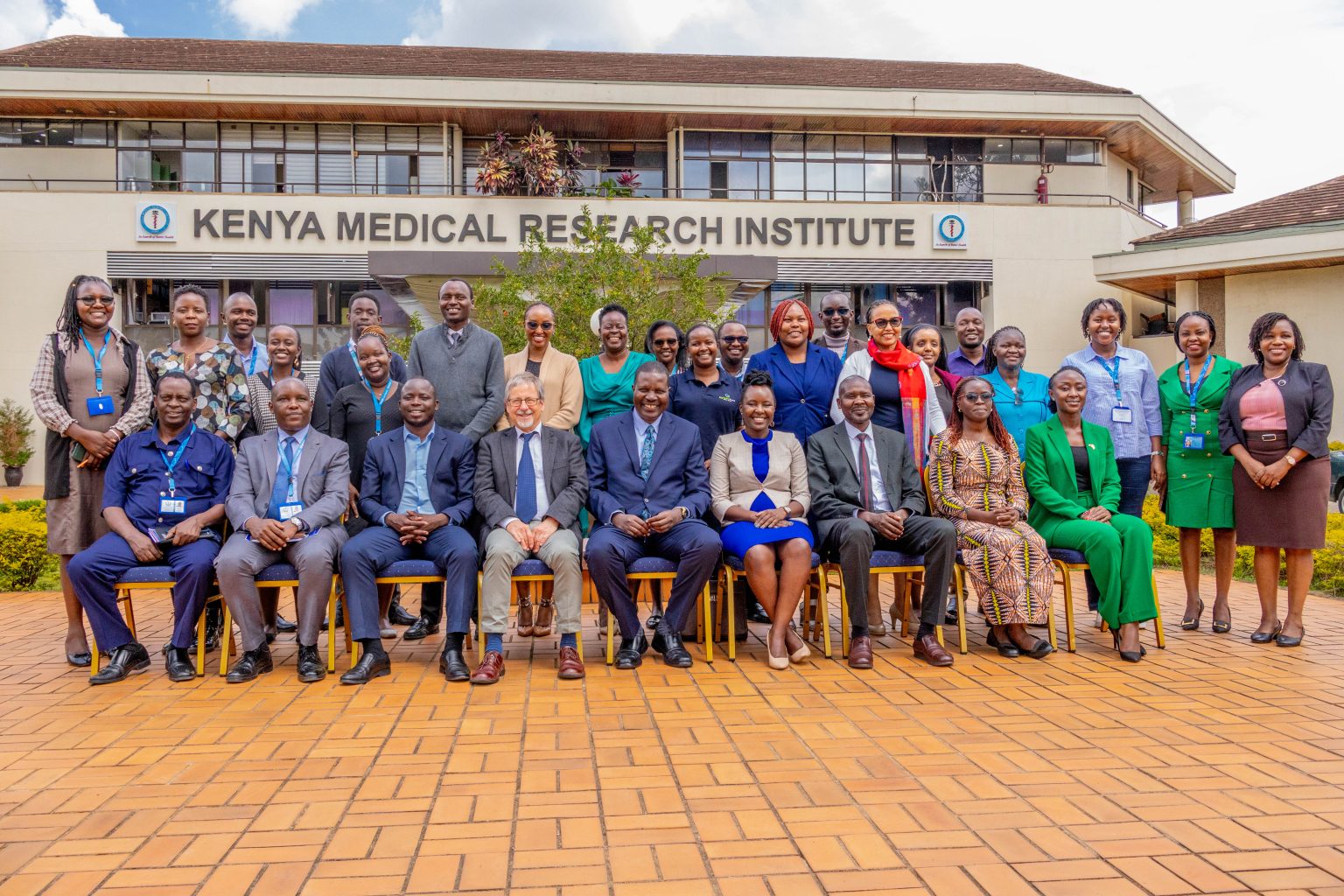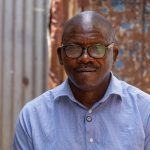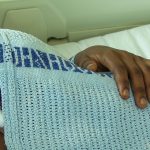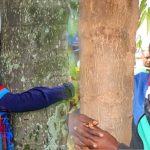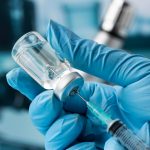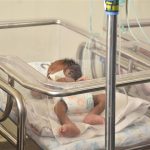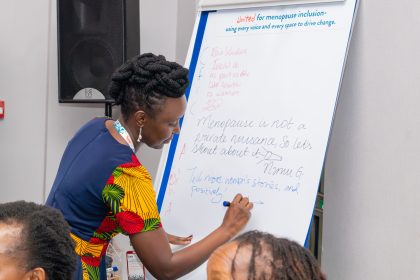After an intense eight-week bootcamp, 14 journalists and health communicators from Kenya, Uganda, Tanzania, and Cameroon have officially levelled up—armed with sharper skills, bolder voices, and a mission to transform public health narratives across the continent.
The programme, hosted at the Kenya Medical Research Institute (KEMRI) Graduate School, was a collaborative effort between CLEAN-Air Africa, the University of Liverpool, and Willow Health Media. It aimed to bridge the gap between scientific research and everyday storytelling, turning data and complex health information into accessible, people-centred narratives that move the needle on public health awareness.
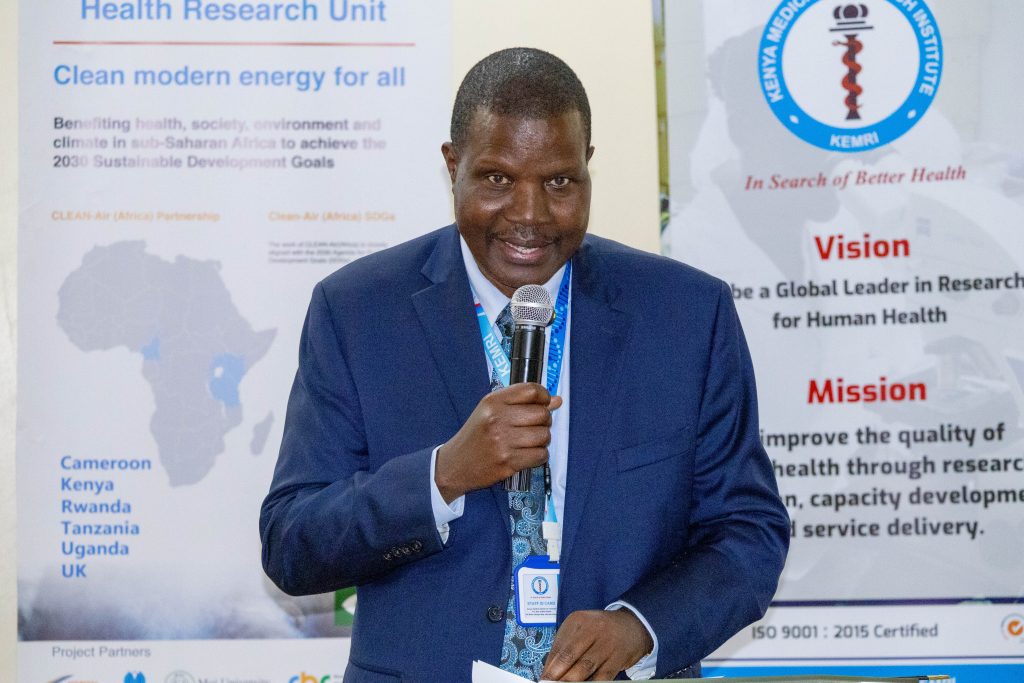
Prof Elijah Songok, Director at KEMRI, praised the programme during the closing ceremony. “This training has been a game-changer,” he said. “It has sharpened the skills of journalists, PR officers, and health managers across the region. Strong partnerships like this one help us go further, faster, and with more purpose.”
The training addressed key challenges, including misinformation, limited institutional support, and the marginalisation of African health narratives in global discourse. Through hands-on workshops on data journalism, ethical reporting, video storytelling, and countering disinformation, participants were equipped to confront these challenges in a digital age fraught with viral half-truths and information overload.
Dr Mercy Korir, CEO and Editor-in-Chief of Willow Health Media, delivered the keynote address. A medical doctor and award-winning journalist, she reflected on the progress made and the path ahead.
“Health journalism in Africa remains one of the most untapped opportunities. But we’re changing that one story at a time,” she said. “At Willow Health Media, we’re video-first because that’s how today’s audiences consume content. But within those digital spaces, misinformation also thrives. That’s why we need trained, ethical journalists more than ever to provide credible stories in a sea of confusion.”
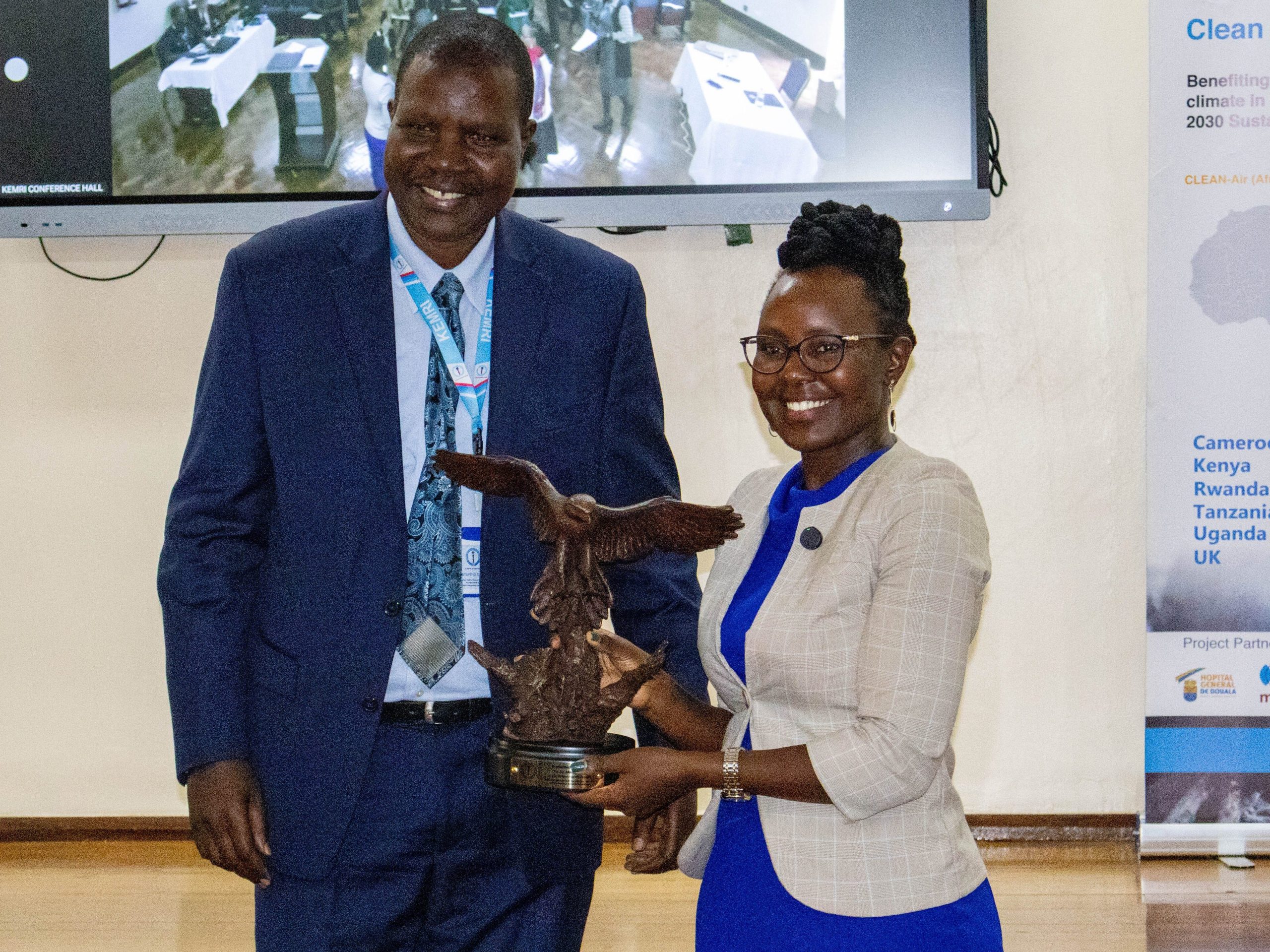
She emphasized that Willow’s mission is rooted not just in storytelling, but in accountability and impact. “Since our launch, we’ve dedicated ourselves to mentoring a new generation of health journalists who aren’t afraid to ask hard questions and tell stories that truly matter.”
Prof Daniel Pope from the University of Liverpool praised the collaboration and highlighted its growing relevance in today’s digital world. “We are up against a media environment dominated by rapid, unchecked communication where misinformation spreads like wildfire,” he said. “That’s why this programme and the graduates leaving it are so important. The collaboration with Willow Health Media has been instrumental, and we’re excited to strengthen it going forward.”
Dr Martin Bundi, one of the lead facilitators, commended the participants for their growth. “Over the past eight weeks, these journalists have developed a sharp eye for stories that matter and the skills to translate complex research into compelling narratives that resonate with communities,” he said.
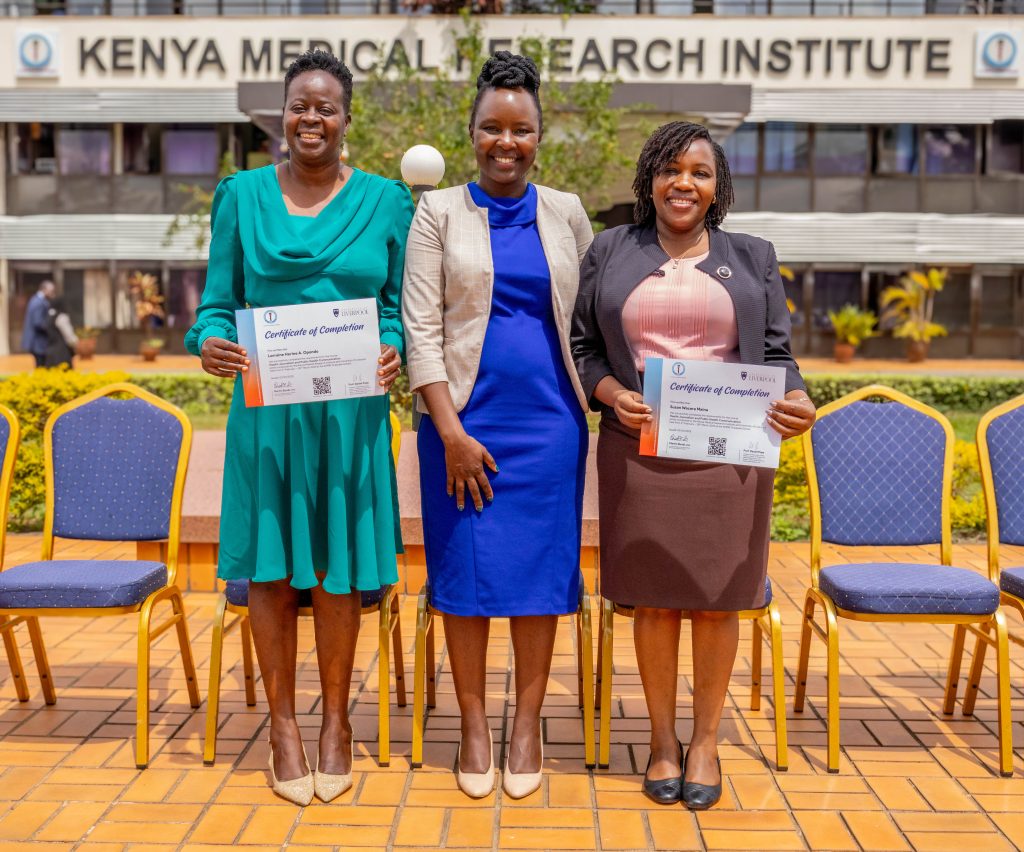
Prof Songok paid special tribute to Willow Health Media for championing the programme’s mission. “This could not have happened without Willow’s partnership,” he noted. “Our greatest allies in public health are the journalists and we must empower them with accurate, science-based information if we are to make lasting change.”
Dr Bundi also recounted a memorable visit to Willow Health Media’s headquarters in Upper Hill, Nairobi. “It’s a space that breathes innovation. You can feel the energy, the forward-thinking mindset, and the audience-first approach that drives their storytelling.”
As the training drew to a close, Dr Korir delivered a parting message filled with optimism and ambition. “We’re just getting started,” she declared. “On behalf of Willow Health Media, we look forward to launching cohort 1 of 2025 and taking this movement continental.”
While the curtains may have fallen on the first training, the momentum it created is just beginning. Recruitment for Cohort 2 is ongoing and scheduled to start on June 23, 2025. Across East and Central Africa, a new generation of health communicators is rising armed with skills, purpose, and the resolve to reclaim the continent’s health narrative with truth, clarity and impact.
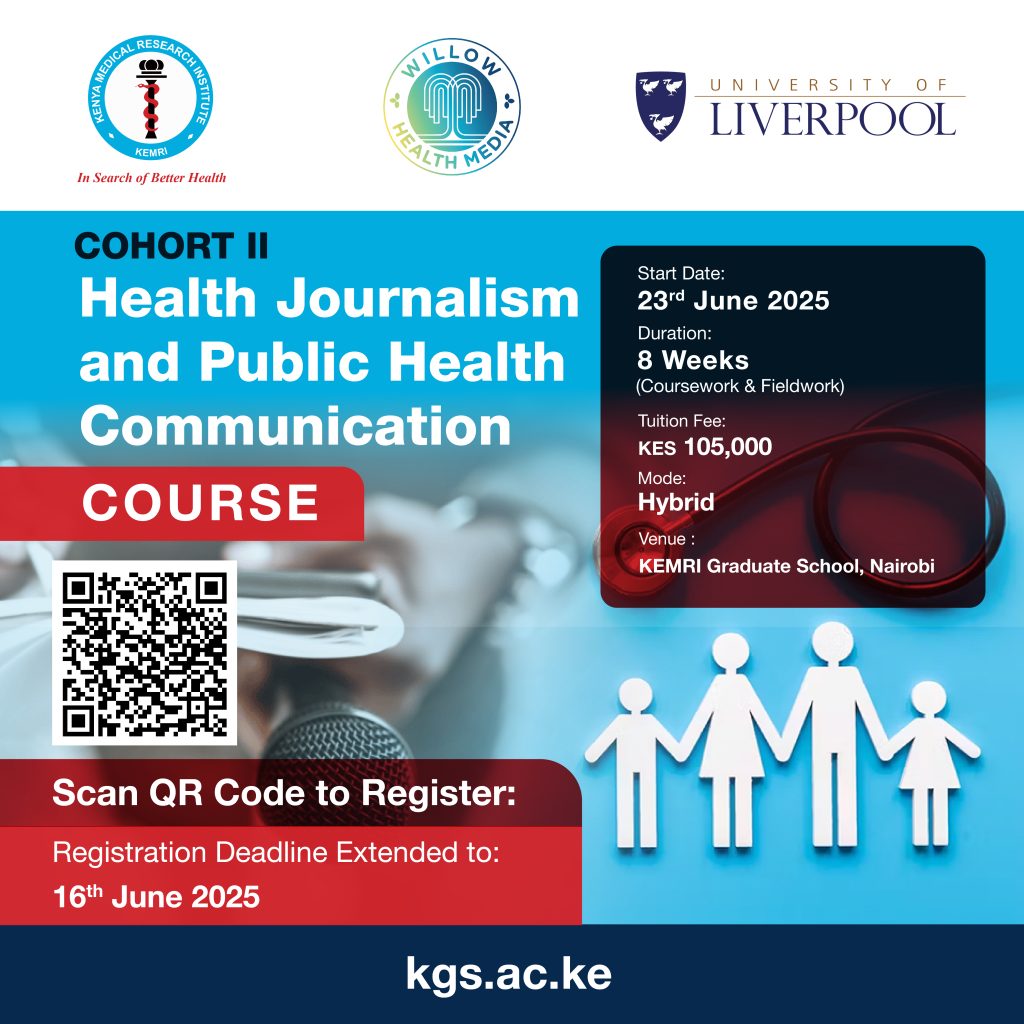
Registration Link: https://kgs.ac.ke/short-course/health-journalism/
Registration Deadline: June 16, 2025
Course Start Date: June 23, 2025
Hybrid learning (Physical & Virtual)



